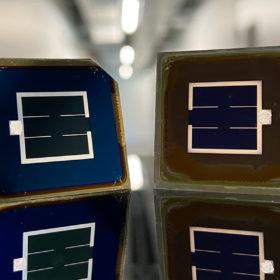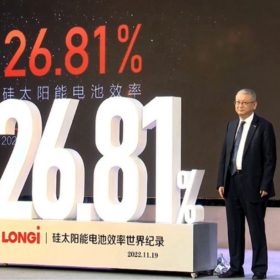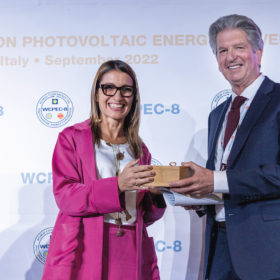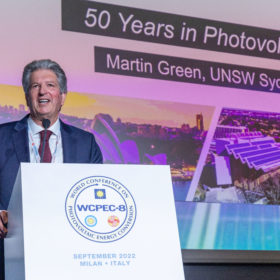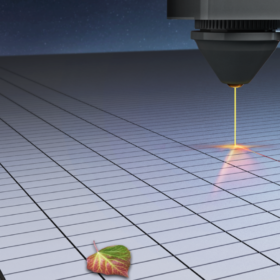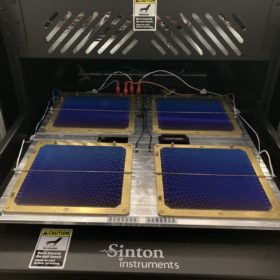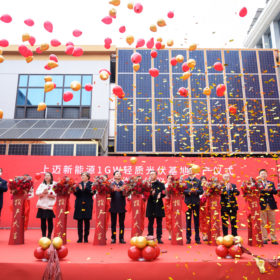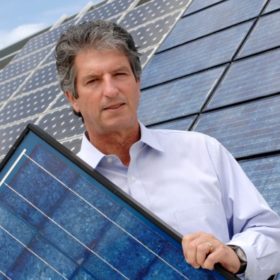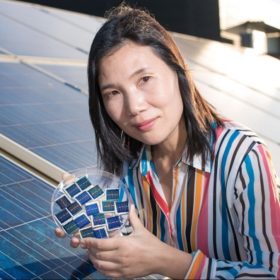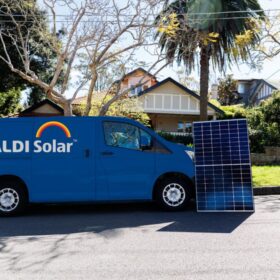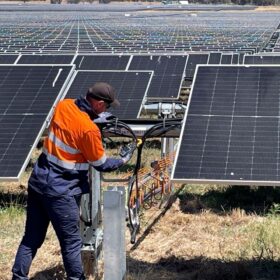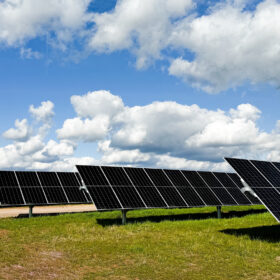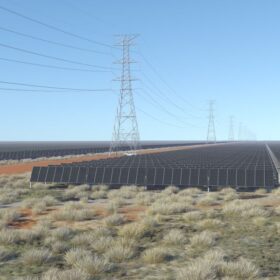Martin Green’s solar cell efficiencies at a glance updated
A research group led by Professor Martin Green has published Version 61 of the solar cell efficiency tables. The tables include a world record for a silicon heterojunction cell, announced by Longi earlier this week, as well as five more new results.
Green rates feat after Longi achieves record 26.81% with silicon cell
Chinese solar manufacturing giant Longi has announced the achievement of a world record 26.81% conversion efficiency from a cell utilising heterojunction technology on full-size silicon wafers in mass production. The company said the measurement has been validated by Germany’s Institute for Solar Energy Research.
Weekend read: A sustainability swan song
Pioneering PV researcher Martin Green has received an abundance of accolades over his 50-year career of fundamental solar research with teams at the University of New South Wales (UNSW). That contribution was further recognised on Sept. 26, when he picked up the WCPEC-8 Award in Milan, Italy. Green spoke with pv magazine about the role of technologies such as PERC cells and his efforts to advance non-toxic thin film semiconductors for the tandem cells of the future.
UNSW’s Martin Green picks up $1.5 million Millennium Technology Prize
Australian research that has seen crystalline silicon (c-Si) PV technology takes its place in the mainstream of the global energy industry has been recognised by picking up Finland’s top technology award. The €1 million (AUD 1.55 million) Millennium Technology Prize has been awarded to UNSW Scientia Professor Martin Green, in recognition for his work in developing passivated emitter rear contact (PERC) technology – the mainstay cell of the modern solar industry.
Reverse bias – a hidden challenge for perovskite solar cell stability
Research from renowned PV scientist Martin Green and colleagues at UNSW reveals that perovskite solar cells may struggle to deal with reverse-bias caused by uneven shading or other issues likely to appear in the field. Both the reverse-bias itself and resulting build up of heat can cause several of the materials commonly used in perovskite solar cells to degrade, and these issues have received only limited attention in research published to date. Solutions, however, are at hand.
ACAP lands $45 million to kick renewable energy transformation into gear
The Australian Centre for Advanced Photovoltaics will receive up to $45 million in federal funding over the next eight years as it seeks to develop the next generation of efficient and ultra low-cost solar technologies.
Solar cell efficiencies at a glance – updated
A research group led by UNSW’s Professor Martin Green has published Version 60 of the Solar cell efficiency tables.
Sunman opens 1GW lightweight PV module factory
Sunman Energy claims the new factory, located in Yangzhong City in China’s Jiangsu province, is the world’s largest production facility for lightweight photovoltaics.
All solar cell efficiencies at a glance
The research group led by Professor Martin Green has published Version 58 of the Solar cell efficiency tables. He spoke with pv magazine about the criteria with which these tables are compiled and the importance of result certification by independent third parties.
PM’s Prize for Science awarded to UNSW’s Xiaojing Hao for her pioneering work thin-film PV
The 2020 Prime Minister’s Prizes for Science took place virtually this year, but that won’t quash the recognition of Xiaojing Hao, UNSW’s solar pioneer who took home (or rather, received at home) the prize for Physical Scientist of the Year. Hao’s work in thin-film photovoltaics is leading the world in fashioning new and sustainable applications for solar PV.
